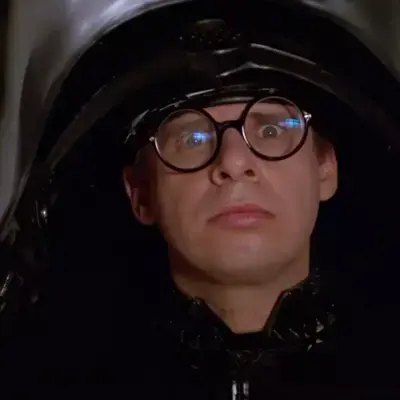Research paper referenced in the video that makes Dr. Hossenfelder very worried:
Global warming in the pipeline: https://academic.oup.com/oocc/article/3/1/kgad008/7335889
Abstract
Improved knowledge of glacial-to-interglacial global temperature change yields Charney (fast-feedback) equilibrium climate sensitivity 1.2 ± 0.3°C (2σ) per W/m2, which is 4.8°C ± 1.2°C for doubled CO2. Consistent analysis of temperature over the full Cenozoic era—including ‘slow’ feedbacks by ice sheets and trace gases—supports this sensitivity and implies that CO2 was 300–350 ppm in the Pliocene and about 450 ppm at transition to a nearly ice-free planet, exposing unrealistic lethargy of ice sheet models. Equilibrium global warming for today’s GHG amount is 10°C, which is reduced to 8°C by today’s human-made aerosols. Equilibrium warming is not ‘committed’ warming; rapid phaseout of GHG emissions would prevent most equilibrium warming from occurring. However, decline of aerosol emissions since 2010 should increase the 1970–2010 global warming rate of 0.18°C per decade to a post-2010 rate of at least 0.27°C per decade. Thus, under the present geopolitical approach to GHG emissions, global warming will exceed 1.5°C in the 2020s and 2°C before 2050. Impacts on people and nature will accelerate as global warming increases hydrologic (weather) extremes. The enormity of consequences demands a return to Holocene-level global temperature. Required actions include: (1) a global increasing price on GHG emissions accompanied by development of abundant, affordable, dispatchable clean energy, (2) East-West cooperation in a way that accommodates developing world needs, and (3) intervention with Earth’s radiation imbalance to phase down today’s massive human-made ‘geo-transformation’ of Earth’s climate. Current political crises present an opportunity for reset, especially if young people can grasp their situation.
My basic summary (I am NOT a climate scientist so someone tell me if I’m wrong and I HOPE this is wrong for my children), scientists had dismissed hotter climate models due to the fact that we didn’t have historical data to prove them. Now folks are applying hotter models to predicting weather and the hotter models appear to be more accurate. So it looks like we’re going to break 2C BEFORE 2050 and could hit highs of 8C-10C by the end of the century with our CURRENT levels of green house gases, not even including increasing those.
EDIT: Adding more sources:
Use of Short-Range Forecasts to Evaluate Fast Physics Processes Relevant for Climate Sensitivity: https://agupubs.onlinelibrary.wiley.com/doi/full/10.1029/2019MS001986
Short-term tests validate long-term estimates of climate change: https://www.nature.com/articles/d41586-020-01484-5



I didn’t say that. you are arguing with a strawman
So how do they need less food than they consume? Because we feed them silage, plus a lot more food.
just don’t feed them anything other than our waste products (silage, crop seconds, waste from processing, etc). then you don’t need to feed them anything else, but i’ve already described the vast majority of crops that are given to animals.
They currently live off of more than our waste products, so feeding them less isn’t going to work. We have to produce so much food to feed them, but we could reduce the amount of land needed for crops if we were only feeding people.
we don’t need to feed them more than waste. that’s a choice
Okay, so we have large numbers of livestock dying of starvation because there are not enough calories in silage to support the livestock we have.
Then because they die unevenly (older and naturally sicklier animals first), they’re still pretty well distributed throughout farms very far from each other.
So now we need to transport our silage further to distribute it to our livestock, who again release a lot of methane in their processing of it.
This means, instead of using silage to make fertilizer or allow tractors to run on ethanol, we send it far away, where it can be used make a lot more contributions to greenhouse gases than we would have if we’d just stop trying to rear animals.
can you provide any numbers to support this? it seems to me if the carbon has been taken out of the atmosphere by crops, then burning it as ethanol has a higher carbon release than letting a cow turn at least some of it into food.
Well, animals produce methane, which is a significantly more damaging greenhouse gas than CO2 (as it eventually degrades into CO2, whereas combustion of ethanol only results in CO2 and water. Ethanol isn’t perfect, but it’s less damaging than livestock, which also require land, while ethanol does not.
ethanol production definitely requires land
no, you can just raise the livestock near the crops.
So we need to move all the farms? How does that work?
same way you dictate what food is made, I suppose
what, why? if you can control who is planting what, where, why can’t you control who is breeding livestock?
We can’t control who is planting what, we have to make it a choice people want to make.
I don’t see how this is ever going to happen
why? beef cattle are usually harvested at 18 months or so. surely it’s just a matter of decreasing production across the board.
How do you do this?
as soon as you figure out how to dictate what crops are planted, I’m sure the answer will be clear.